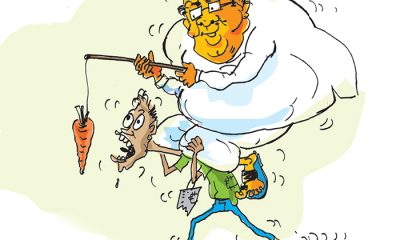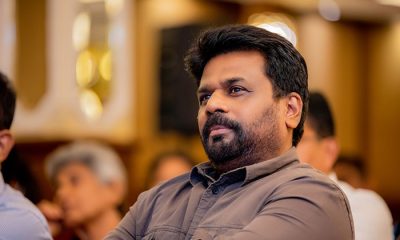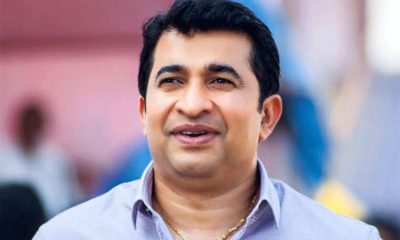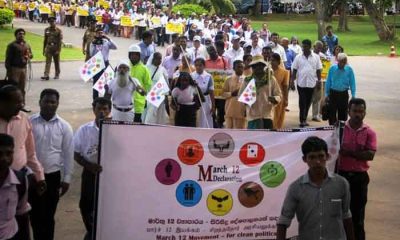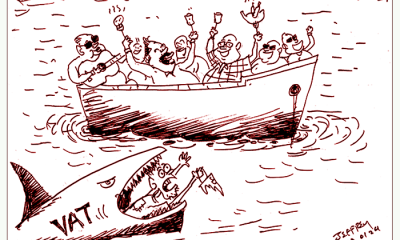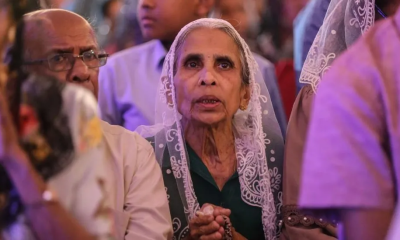Features
Channel 4 resurrects Easter Sunday, rips open can of squirming worms

by Rajan Philips
Channel 4 has resurrected Easter and divided the political waters. Like Moses leading the Israelis through the divided waters of the Red Sea, Cardinal Malcolm Ranjith is leading his faithful through the divided political waters of the country. Without taking a position on the Channe 4 documentary, the Cardinal has hit the nail on the head by calling for a “free, impartial, just, transparent and broad based investigation” into Channel 4 revelations by “an independent international investigation team”. At the same time, Cardinal Ranjith has confirmed his willingness “to forgive the perpetrators of the Easter Sunday attacks if they accept responsibility and repent,” emulating the Truth and Reconciliation experience in South Africa.
Forgiving is core to transitional justice, just as remembering and commemorating is an essential part of healing for the victims of injustice. Covering up crimes, on the other hand, is to perpetuate injustice and to reward those who wrong at the expense of those who have been wronged.
In instances of political crimes, grievously wronged. While enough is being said about the veracity, or otherwise, of the Channel 4 Despatches, the real consequence of Channel 4 goes beyond connecting the dots leading up to 2019 Easter Sunday. Quite inadvertently, Channel 4 has provided a broad wraparound encompassing all the political crimes of this century and the state’s unwillingness to solve any of them.
What has been brought into sudden relief is the whole web of crimes from the murder of Lasantha Wickrematunge to the massacres of Easter Sunday. You can extend the web before and after – to the murder of Kumar Ponnambalam literally at the turn of the millennium, to the killing of Dinesh Schaffter less than a year ago. On the former, a government lawyer actually said in court that the case file had gone missing. On the latter, the police are still trying to officially figure out how Mr. Schaffter died, even though everyone who knows about the case knows how he died. In between lies a whole web of unsolved crimes, Scot-free criminals, and well-protected masterminds. Channel 4 has ripped open a whole can of squirming worms. Closing the can seems to be finally becoming an impossible task.
Cover-up politics
Gotabaya Rajapaksa jumped the gun in rushing to his own defense with a silly statement under a sillier signature as the Seventh Executive President (who on earth will sign like this except the organic man). His still faithful loyalists came out to join him thinking that the tide had begun to turn. It has, but the other way around. Channel 4 skeptics and establishment minnows are being drowned out by calls for an international inquiry in one form or another. Even Maithripala Sirisena and Namal Rajapaksa are for it. Erstwhile (Mahinda) Rajapaksa loyalists are letting themselves off the leash and are going on a tear for Gota. There is even a new political explanation for the Easter bombings. It was not so much to win the presidential election as it was to secure the family nomination as a presidential candidate. It is turning out to be Gota vs. the Rest – of the family, that is, not necessarily the country.
In Geneva, Ambassador Himalee Arunatilaka (a career diplomat, finally displacing the guest artist that Gotabaya sent to UNHRC) is doing the thankless job of insisting that extensive and comprehensive investigations have been carried out by the government with the assistance of the Australian Federal Police, the FBI of the United States and INTERPOL. But she knows what all informed Sri Lankans and those listening to her in Geneva know. They know that nothing by way of the whole truth has come out of these investigations to conclusively indicate who knew and did what and when.
The Supreme Court ruling has become a convenient red herring for Gota apologists. The Court ruling was on a Fundamental Rights application against those in power for their dereliction of duty. It is not the last word on who conspired with whom to cause what happened on Easter Sunday. Nor does what is reported as 79 indictments so far answers the question whether there was a mastermind pulling strings behind the bombings.
President Wickremesinghe is reported to have told his cabinet that the Channel 4 documentary does not concern the government and it would be up to the individuals concerned by it to decide to respond or not. That position did not last long, so he announced another Parliamentary Select Committee hearing, and to top it up with yet a different committee headed by a former Supreme Court Judge.
The Catholic Church has rejected it. What is coming out loud and clear is that the Channel 4 revelations deserve to be investigated, with credible international presence or observation. No one is buying the establishment line, which is also the Gota line, that there has been enough investigation and inquiry already. No one believes that the Easter attacks were the result of some spontaneous eruption of Islamic Fundamentalism. The concern goes beyond Easter, and includes all the political crimes before and after.
Political Violence and Political Crimes
Sri Lanka’s web of political crimes should not be viewed in isolation from the fields of killing that Sri Lanka suffered during the JVP insurrection and the LTTE ‘war’. At the same time, it is necessary to note that there are differences between political violence of the past and the political crimes that have been multiplying even after political violence was ended. The last decades of the 20th century were engulfed in political violence. The early decades of this century are being marred by political crimes.
The JVP is now reborn and is now recognized as an agent of hope within the political system – quite a world apart from its earlier role as an agent of disruption against the system. The LTTE violence is now history, but its legacy continues in the politics over reconciliation and in the harassment of Tamils and Muslims in the North and East under cover of pseudo Archaeology. Even though political violence has ended, the culture of violence it created and the resources of violence it amassed have facilitated the emergence of political crimes and their continuation.
A characteristic of political violence, whether it was JVP or LTTE, was that it was not conducted in the interests of political families or for electoral gains of political families or organizations. I am not suggesting this characteristic is a redeeming feature of violence, or a justification for it. Only to contrast with the web of political crimes that has now become a fact of life, and which involves the interests of one or more political families. Some are more prominent at the national level; others rule the roost at the local levels without national notoriety.
While contrasting political violence and political crimes, it is also possible to see the 2019 Easter Sunday tragedies as a coming together of the two. Quite literally, the web of allegations has brought together those who were active in the political violence of the LTTE and those who were spearheading the violence of the state against the LTTE. The specific intersection of the Rajapaksa family and LTTE renegades started long before 2019 Easter Sunday and has been continuing since. The linkage between them that is now alleged by Channel 4 was quite definitively exposed by Amnesty International over what it called the “the collapse of Joseph Pararajasingham murder case.”
That was when S. Chandrakanthan (aka Plillayan) was controversially acquitted along with four others in the 2005 assassination of TNA MP Joseph Pararajasingham, who was killed while attending Christmas Mass at the Batticaloa Cathedral. The Attorney General announced that he would be dropping the charges against the suspects. Mr. Chandrakanthan has since become an MP, and is now a State Minister. He is not the only one enabled by the Rajapaksas to overcome murder conviction and enter parliament. Premalal Jayasekara from the Ratnapura District is another such beneficiary. And the two men represent not the cover up of crimes but the celebration of them by parliament itself, which was once “the supreme instrument of state power.”
What Channel 4 has unintentionally done is to disrupt the process of normalization of crimes, and the acquiescence of Sri Lankan society to get on with life while turning a blind eye to the perpetration of political crimes and their cover up. Those who rush to question the veracity of Channel 4 revelations, should also pause to reflect on the unanswered questions surrounding so many individual killings and involving the politically powerful. The debate over Channel 4 has brought to surface the moral contradictions of Sri Lankan society. And the debate has taken a new turn.
Features
The invisible crisis: How tour guide failures bleed value from every tourist
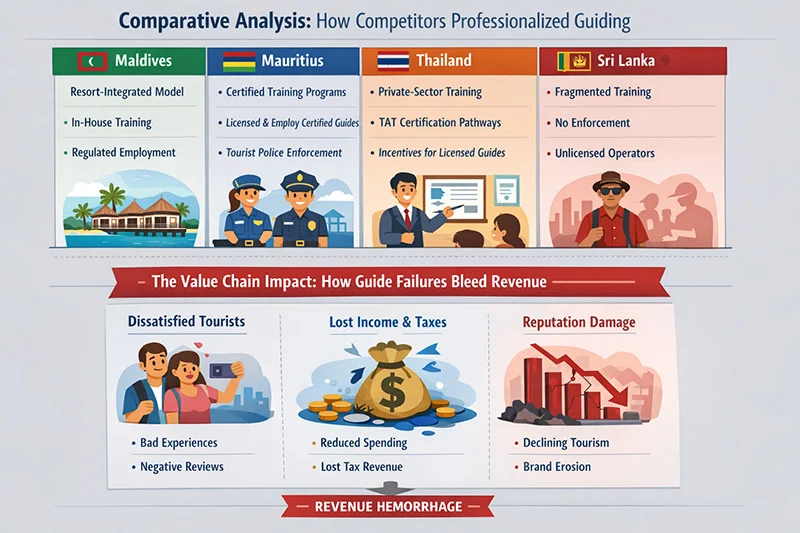
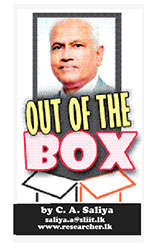 (Article 04 of the 04-part series on Sri Lanka’s tourism stagnation)
(Article 04 of the 04-part series on Sri Lanka’s tourism stagnation)
If you want to understand why Sri Lanka keeps leaking value even when arrivals hit “record” numbers, stop staring at SLTDA dashboards and start talking to the people who face tourists every day: the tour guides.
They are the “unofficial ambassadors” of Sri Lankan tourism, and they are the weakest, most neglected, most dysfunctional link in a value chain we pretend is functional. Nearly 60% of tourists use guides. Of those guides, 57% are unlicensed, untrained, and invisible to the very institutions claiming to regulate quality. This is not a marginal problem. It is a systemic failure to bleed value from every visitor.
The Invisible Workforce
The May 2024 “Comprehensive Study of the Sri Lankan Tour Guides” is the first serious attempt, in decades, to map this profession. Its findings should be front-page news. They are not, because acknowledging them would require admitting how fundamentally broken the system is. The official count (April 2024): SLTDA had 4,887 licensed guides in its books:
* 1,892 National Guides (39%)
* 1,552 Chauffeur Guides (32%)
* 1,339 Area Guides (27%)
* 104 Site Guides (2%)
The actual workforce: Survey data reveals these licensed categories represent only about 75% of people actually guiding tourists. About 23% identify as “other”; a polite euphemism for unlicensed operators: three-wheeler drivers, “surf boys,” informal city guides, and touts. Adjusted for informal operators, the true guide population is approximately 6,347; 32% National, 25% Chauffeur, 16% Area, 4% Site, and 23% unlicensed.
But even this understates reality. Industry practitioners interviewed in the study believe the informal universe is larger still, with unlicensed guides dominating certain tourist hotspots and price-sensitive segments. Using both top-down (tourist arrivals × share using guides) and bottom-up (guides × trips × party size) estimates, the study calculates that approximately 700,000 tourists used guides in 2023-24, roughly one-third of arrivals. Of those 700,000 tourists, 57% were handled by unlicensed guides.
Read that again. Most tourists interacting with guides are served by people with no formal training, no regulatory oversight, no quality standards, and no accountability. These are the “ambassadors” shaping visitor perceptions, driving purchasing decisions, and determining whether tourists extend stays, return, or recommend Sri Lanka. And they are invisible to SLTDA.
The Anatomy of Workforce Failure
The guide crisis is not accidental. It is the predictable outcome of decades of policy neglect, regulatory abdication, and institutional indifference.
1. Training Collapse and Barrier to Entry Failure
Becoming a licensed National Guide theoretically requires:
* Completion of formal training programmes
* Demonstrated language proficiency
* Knowledge of history, culture, geography
* Passing competency exams
In practice, these barriers have eroded. The study reveals:
* Training infrastructure is inadequate and geographically concentrated
* Language requirements are inconsistently enforced
* Knowledge assessments are outdated and poorly calibrated
* Continuous professional development is non-existent
The result: even licensed guides often lack the depth of knowledge, language skills, or service standards that high-yield tourists expect. Unlicensed guides have no standards at all. Compare this to competitors. In Mauritius, tour guides undergo rigorous government-certified training with mandatory refresher courses. The Maldives’ resort model embeds guide functions within integrated hospitality operations with strict quality controls. Thailand has well-developed private-sector training ecosystems feeding into licensed guide pools.
2. Economic Precarity and Income Volatility
Tour guiding in Sri Lanka is economically unstable:
* Seasonal income volatility: High earnings in peak months (December-March), near-zero in low season (April-June, September)
* No fixed salaries: Most guides work freelance or commission-based
* Age and experience don’t guarantee income: 60% of guides are over 40, but earnings decline with age due to physical demands and market preference for younger, language-proficient guides
* Commission dependency: Guides often earn more from commissions on shopping, gem purchases, and restaurant referrals than from guiding fees
The commission-driven model pushes guides to prioritise high-commission shops over meaningful experiences, leaving tourists feeling manipulated. With low earnings and poor incentives, skilled guides exist in the profession while few new entrants join. The result is a shrinking pool of struggling licensed guides and rising numbers of opportunistic unlicensed operators.
3. Regulatory Abdication and Unlicensed Proliferation
Unlicensed guides thrive because enforcement is absent, economic incentives favour avoiding fees and taxes, and tourists cannot distinguish licensed professionals from informal operators. With SLTDA’s limited capacity reducing oversight, unregistered activity expands. Guiding becomes the frontline where regulatory failure most visibly harms tourist experience and sector revenues in Sri Lanka.
4. Male-Dominated, Ageing, Geographically Uneven Workforce
The guide workforce is:
* Heavily male-dominated: Fewer than 10% are women
* Ageing: 60% are over 40; many in their 50s and 60s
* Geographically concentrated: Clustered in Colombo, Galle, Kandy, Cultural Triangle—minimal presence in emerging destinations
This creates multiple problems:
* Gender imbalance: Limits appeal to female solo travellers and certain market segments (wellness tourism, family travel with mothers)
* Physical limitations: Older guides struggle with demanding itineraries (hiking, adventure tourism)
* Knowledge ossification: Ageing workforce with no continuous learning rehashes outdated narratives, lacks digital literacy, cannot engage younger tourist demographics
* Regional gaps: Emerging destinations (Eastern Province, Northern heritage sites) lack trained guide capacity
1. Experience Degradation Lower Spending
Unlicensed guides lack knowledge, language skills, and service training. Tourist experience degrades. When tourists feel they are being shuttled to commission shops rather than authentic experiences, they:
* Cut trips short
* Skip additional paid activities
* Leave negative reviews
* Do not return or recommend
The yield impact is direct: degraded experiences reduce spending, return rates, and word-of-mouth premium.

2. Commission Steering → Value Leakage
Guides earning more from commissions than guiding fees optimise for merchant revenue, not tourist satisfaction.
This creates leakage: tourism spending flows to merchants paying highest commissions (often with foreign ownership or imported inventory), not to highest-quality experiences.
The economic distortion is visible: gems, souvenirs, and low-quality restaurants generate guide commissions while high-quality cultural sites, local artisan cooperatives, and authentic restaurants do not. Spending flows to low-value, high-leakage channels.
3. Safety and Security Risks → Reputation Damage
Unlicensed guides have no insurance, no accountability, no emergency training. When tourists encounter problems, accidents, harassment, scams, there is no recourse. Incidents generate negative publicity, travel advisories, reputation damage. The 2024-2025 reports of tourists being attacked by wildlife at major sites (Sigiriya) with inadequate safety protocols are symptomatic. Trained, licensed guides would have emergency protocols. Unlicensed operators improvise.
4. Market Segmentation Failure → Yield Optimisation Impossible
High-yield tourists (luxury, cultural immersion, adventure) require specialised guide-deep knowledge, language proficiency, cultural sensitivity. Sri Lanka cannot reliably deliver these guides at scale because:
* Training does not produce specialists (wildlife experts, heritage scholars, wellness practitioners)
* Economic precarity drives talent out
* Unlicensed operators dominate price-sensitive segments, leaving limited licensed capacity for premium segments
We cannot move upmarket because we lack the workforce to serve premium segments. We are locked into volume-chasing low-yield markets because that is what our guide workforce can provide.
The way forward
Fixing Sri Lanka’s guide crisis demands structural reform, not symbolic gestures. A full workforce census and licensing audit must map the real guide population, identify gaps, and set an enforcement baseline. Licensing must be mandatory, timebound, and backed by inspections and penalties. Economic incentives should reward professionalism through fair wages, transparent fees, and verified registries. Training must expand nationwide with specialisations, language standards, and continuous development. Gender and age imbalances require targeted recruitment, mentorship, and diversified roles. Finally, guides must be integrated into the tourism value chain through mandatory verification, accountability measures, and performancelinked feedback.
The Uncomfortable Truth
Can Sri Lanka achieve high-value tourism with a low-quality, largely unlicensed guide workforce? The answer is NO. Unambiguously, definitively, NO. Sri Lanka’s guides shape tourist perceptions, spending, and satisfaction, yet the system treats them as expendable; poorly trained, economically insecure, and largely unregulated. With 57% of tourists relying on unlicensed guides, experience quality becomes unpredictable and revenue leaks into commission-driven channels.
High-yield markets avoid destinations with weak service standards, leaving Sri Lanka stuck in low-value, volume tourism. This is not a training problem but a structural failure requiring regulatory enforcement, viable career pathways, and a complete overhaul of incentives. Without professionalising guides, high-value tourism is unattainable. Fixing the guide crisis is the foundation for genuine sector transformation.
The choice is ours. The workforce is waiting.
This concludes the 04-part series on Sri Lanka’s tourism stagnation. The diagnosis is complete. The question now is whether policymakers have the courage to act.
For any concerns/comments contact the author at saliya.ca@gmail.com
(The writer, a senior Chartered Accountant and professional banker, is Professor at SLIIT, Malabe. The views and opinions expressed in this article are personal.)
Features
Recruiting academics to state universities – beset by archaic selection processes?

Time has, by and large, stood still in the business of academic staff recruitment to state universities. Qualifications have proliferated and evolved to be more interdisciplinary, but our selection processes and evaluation criteria are unchanged since at least the late 1990s. But before I delve into the problems, I will describe the existing processes and schemes of recruitment. The discussion is limited to UGC-governed state universities (and does not include recruitment to medical and engineering sectors) though the problems may be relevant to other higher education institutions (HEIs).
How recruitment happens currently in SL state universities
Academic ranks in Sri Lankan state universities can be divided into three tiers (subdivisions are not discussed).
* Lecturer (Probationary)
– recruited with a four-year undergraduate degree. A tiny step higher is the Lecturer (Unconfirmed), recruited with a postgraduate degree but no teaching experience.
* A Senior Lecturer can be recruited with certain postgraduate qualifications and some number of years of teaching and research.
* Above this is the professor (of four types), which can be left out of this discussion since only one of those (Chair Professor) is by application.
State universities cannot hire permanent academic staff as and when they wish. Prior to advertising a vacancy, approval to recruit is obtained through a mind-numbing and time-consuming process (months!) ending at the Department of Management Services. The call for applications must list all ranks up to Senior Lecturer. All eligible candidates for Probationary to Senior Lecturer are interviewed, e.g., if a Department wants someone with a doctoral degree, they must still advertise for and interview candidates for all ranks, not only candidates with a doctoral degree. In the evaluation criteria, the first degree is more important than the doctoral degree (more on this strange phenomenon later). All of this is only possible when universities are not under a ‘hiring freeze’, which governments declare regularly and generally lasts several years.
Problem type 1
– Archaic processes and evaluation criteria
Twenty-five years ago, as a probationary lecturer with a first degree, I was a typical hire. We would be recruited, work some years and obtain postgraduate degrees (ideally using the privilege of paid study leave to attend a reputed university in the first world). State universities are primarily undergraduate teaching spaces, and when doctoral degrees were scarce, hiring probationary lecturers may have been a practical solution. The path to a higher degree was through the academic job. Now, due to availability of candidates with postgraduate qualifications and the problems of retaining academics who find foreign postgraduate opportunities, preference for candidates applying with a postgraduate qualification is growing. The evaluation scheme, however, prioritises the first degree over the candidate’s postgraduate education. Were I to apply to a Faculty of Education, despite a PhD on language teaching and research in education, I may not even be interviewed since my undergraduate degree is not in education. The ‘first degree first’ phenomenon shows that universities essentially ignore the intellectual development of a person beyond their early twenties. It also ignores the breadth of disciplines and their overlap with other fields.
This can be helped (not solved) by a simple fix, which can also reduce brain drain: give precedence to the doctoral degree in the required field, regardless of the candidate’s first degree, effected by a UGC circular. The suggestion is not fool-proof. It is a first step, and offered with the understanding that any selection process, however well the evaluation criteria are articulated, will be beset by multiple issues, including that of bias. Like other Sri Lankan institutions, universities, too, have tribal tendencies, surfacing in the form of a preference for one’s own alumni. Nevertheless, there are other problems that are, arguably, more pressing as I discuss next. In relation to the evaluation criteria, a problem is the narrow interpretation of any regulation, e.g., deciding the degree’s suitability based on the title rather than considering courses in the transcript. Despite rhetoric promoting internationalising and inter-disciplinarity, decision-making administrative and academic bodies have very literal expectations of candidates’ qualifications, e.g., a candidate with knowledge of digital literacy should show this through the title of the degree!
Problem type 2 – The mess of badly regulated higher education
A direct consequence of the contemporary expansion of higher education is a large number of applicants with myriad qualifications. The diversity of degree programmes cited makes the responsibility of selecting a suitable candidate for the job a challenging but very important one. After all, the job is for life – it is very difficult to fire a permanent employer in the state sector.
Widely varying undergraduate degree programmes.
At present, Sri Lankan undergraduates bring qualifications (at times more than one) from multiple types of higher education institutions: a degree from a UGC-affiliated state university, a state university external to the UGC, a state institution that is not a university, a foreign university, or a private HEI aka ‘private university’. It could be a degree received by attending on-site, in Sri Lanka or abroad. It could be from a private HEI’s affiliated foreign university or an external degree from a state university or an online only degree from a private HEI that is ‘UGC-approved’ or ‘Ministry of Education approved’, i.e., never studied in a university setting. Needless to say, the diversity (and their differences in quality) are dizzying. Unfortunately, under the evaluation scheme all degrees ‘recognised’ by the UGC are assigned the same marks. The same goes for the candidates’ merits or distinctions, first classes, etc., regardless of how difficult or easy the degree programme may be and even when capabilities, exposure, input, etc are obviously different.
Similar issues are faced when we consider postgraduate qualifications, though to a lesser degree. In my discipline(s), at least, a postgraduate degree obtained on-site from a first-world university is preferable to one from a local university (which usually have weekend or evening classes similar to part-time study) or online from a foreign university. Elitist this may be, but even the best local postgraduate degrees cannot provide the experience and intellectual growth gained by being in a university that gives you access to six million books and teaching and supervision by internationally-recognised scholars. Unfortunately, in the evaluation schemes for recruitment, the worst postgraduate qualification you know of will receive the same marks as one from NUS, Harvard or Leiden.
The problem is clear but what about a solution?
Recruitment to state universities needs to change to meet contemporary needs. We need evaluation criteria that allows us to get rid of the dross as well as a more sophisticated institutional understanding of using them. Recruitment is key if we want our institutions (and our country) to progress. I reiterate here the recommendations proposed in ‘Considerations for Higher Education Reform’ circulated previously by Kuppi Collective:
* Change bond regulations to be more just, in order to retain better qualified academics.
* Update the schemes of recruitment to reflect present-day realities of inter-disciplinary and multi-disciplinary training in order to recruit suitably qualified candidates.
* Ensure recruitment processes are made transparent by university administrations.
Kaushalya Perera is a senior lecturer at the University of Colombo.
(Kuppi is a politics and pedagogy happening on the margins of the lecture hall that parodies, subverts, and simultaneously reaffirms social hierarchies.)
Features
Talento … oozing with talent

 This week, too, the spotlight is on an outfit that has gained popularity, mainly through social media.
This week, too, the spotlight is on an outfit that has gained popularity, mainly through social media.
Last week we had MISTER Band in our scene, and on 10th February, Yellow Beatz – both social media favourites.
Talento is a seven-piece band that plays all types of music, from the ‘60s to the modern tracks of today.
The band has reached many heights, since its inception in 2012, and has gained recognition as a leading wedding and dance band in the scene here.
The members that makeup the outfit have a solid musical background, which comes through years of hard work and dedication
Their portfolio of music contains a mix of both western and eastern songs and are carefully selected, they say, to match the requirements of the intended audience, occasion, or event.
Although the baila is a specialty, which is inherent to this group, that originates from Moratuwa, their repertoire is made up of a vast collection of love, classic, oldies and modern-day hits.
The musicians, who make up Talento, are:
Prabuddha Geetharuchi:
(Vocalist/ Frontman). He is an avid music enthusiast and was mentored by a lot of famous musicians, and trainers, since he was a child. Growing up with them influenced him to take on western songs, as well as other music styles. A Peterite, he is the main man behind the band Talento and is a versatile singer/entertainer who never fails to get the crowd going.
Geilee Fonseka (Vocals):
A dynamic and charismatic vocalist whose vibrant stage presence, and powerful voice, bring a fresh spark to every performance. Young, energetic, and musically refined, she is an artiste who effortlessly blends passion with precision – captivating audiences from the very first note. Blessed with an immense vocal range, Geilee is a truly versatile singer, confidently delivering Western and Eastern music across multiple languages and genres.
Chandana Perera (Drummer):
His expertise and exceptional skills have earned him recognition as one of the finest acoustic drummers in Sri Lanka. With over 40 tours under his belt, Chandana has demonstrated his dedication and passion for music, embodying the essential role of a drummer as the heartbeat of any band.
Harsha Soysa:
(Bassist/Vocalist). He a chorister of the western choir of St. Sebastian’s College, Moratuwa, who began his musical education under famous voice trainers, as well as bass guitar trainers in Sri Lanka. He has also performed at events overseas. He acts as the second singer of the band
Udara Jayakody:
(Keyboardist). He is also a qualified pianist, adding technical flavour to Talento’s music. His singing and harmonising skills are an extra asset to the band. From his childhood he has been a part of a number of orchestras as a pianist. He has also previously performed with several famous western bands.
Aruna Madushanka:
(Saxophonist). His proficiciency in playing various instruments, including the saxophone, soprano saxophone, and western flute, showcases his versatility as a musician, and his musical repertoire is further enhanced by his remarkable singing ability.
Prashan Pramuditha:
(Lead guitar). He has the ability to play different styles, both oriental and western music, and he also creates unique tones and patterns with the guitar..
-

 Opinion5 days ago
Opinion5 days agoJamming and re-setting the world: What is the role of Donald Trump?
-

 Features5 days ago
Features5 days agoAn innocent bystander or a passive onlooker?
-

 Features2 days ago
Features2 days agoBrilliant Navy officer no more
-

 Features6 days ago
Features6 days agoRatmalana Airport: The Truth, The Whole Truth, And Nothing But The Truth
-

 Opinion2 days ago
Opinion2 days agoSri Lanka – world’s worst facilities for cricket fans
-

 Business6 days ago
Business6 days agoIRCSL transforms Sri Lanka’s insurance industry with first-ever Centralized Insurance Data Repository
-

 Business5 days ago
Business5 days agoAn efficacious strategy to boost exports of Sri Lanka in medium term
-

 Features3 days ago
Features3 days agoOverseas visits to drum up foreign assistance for Sri Lanka


